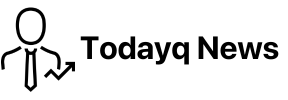Ethereum blocks complying with orders set by the United States Office of Foreign Asset Control (OFAC) have dropped to their lowest level since October 2021, falling to 47% as of February 14, according to blockchain consulting firm Labrys. Compliance peaked at 79% on November 21, 2021, and then fell to a range of 68-75% until January 29, when it hit 66%. This fall is being seen as a win for those who oppose censorship within the Ethereum ecosystem.

OFAC-compliant blocks are those that exclude transactions involving parties sanctioned by the U.S. Treasury Department’s Office of Foreign Assets Control. The fall in compliance could be due to more validators opting to use MEV-boost relays that do not censor transactions in accordance with OFAC requirements.
In particular, the BloXroute Max Profit relay, Ultrasound Money relay and Agnostic Boost relay have picked up most of the change in market share.
MEV-boost relays act as trusted mediators between block producers and block builders, enabling Ethereum validators to outsource their block production to other block builders. Lachlan Feeney, the CEO of Labrys, said in a statement that he’s happy with how the Ethereum community has responded to the censorship issue since it first surfaced post-Merge.
When we released the MevWatch tool drawing attention to a flaw within Ethereum, the community did not stick its head in the sand but instead rose to the occasion and made significant progress addressing the issue.
Lachlan Feeney, CEO of Labrys.
However, Feeney stressed that there is still more work to be done, and many members of the Ethereum community had called for a user-activated soft fork (UASF) prior to the Merge to combat censorship.
According to Decrypt, OFAC most notably sanctioned Ether (ETH) and USD Coin (USDC) wallet addresses that transact using the Ethereum-based privacy mixing tool Tornado Cash on August 8, 2022. This move was aimed at discouraging the use of Tornado Cash as a means of obscuring transaction data. The sanctions effectively made it difficult for users to transact with wallets that were blacklisted by the OFAC.

Labrys believes that the fall in OFAC-compliant blocks shows that the Ethereum community is finding ways to counteract censorship within the ecosystem. While some community members have called for the use of UASF to combat censorship, the drop in compliance was achieved without such a fork.
This trend of decreasing OFAC compliance on Ethereum could be seen as a threat to the United States government’s ability to enforce economic sanctions. In recent years, the use of blockchain technology has made it increasingly difficult to track and control financial transactions. While OFAC has made efforts to prevent the use of sanctioned wallets on Ethereum, the decreasing number of compliant blocks shows that there are workarounds that allow users to bypass these restrictions.
This is not the first time that blockchain technology has been used to circumvent economic sanctions. In 2020, North Korea was accused of using cryptocurrencies to evade international sanctions. The United States government has since made efforts to prevent the use of blockchain technology by sanctioned entities, but the decreasing number of OFAC-compliant blocks on Ethereum suggests that this is an ongoing challenge.
The decreasing number of OFAC-compliant blocks on Ethereum is being seen as a win for those who oppose censorship within the ecosystem. However, it also raises concerns about the effectiveness of economic sanctions in the age of blockchain technology. As Labrys noted, there is still more work to be done, and the Ethereum community will need to find ways to balance the need for privacy with the need for compliance with international regulations.

